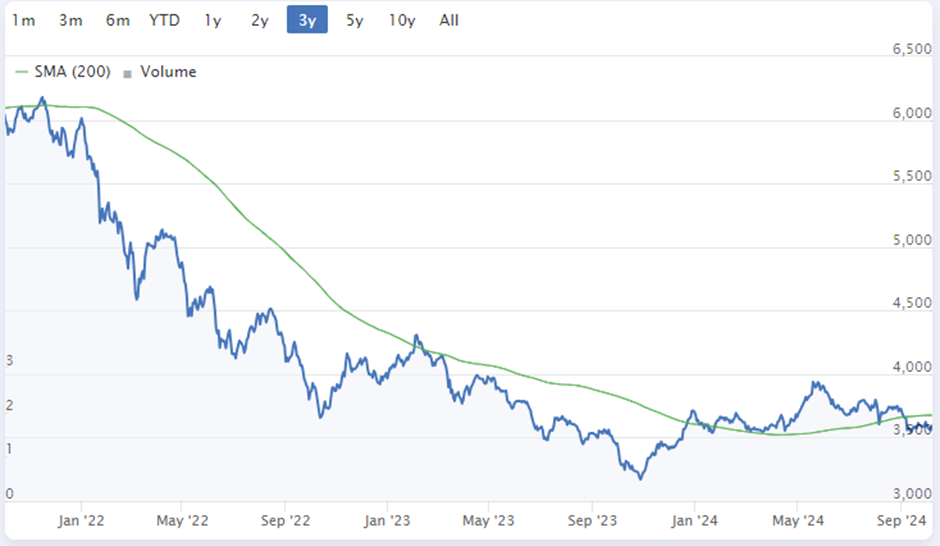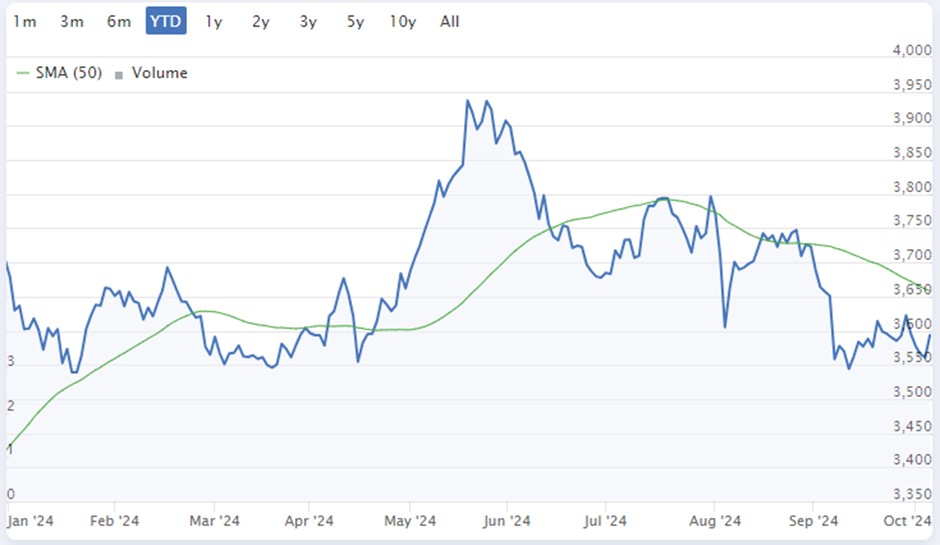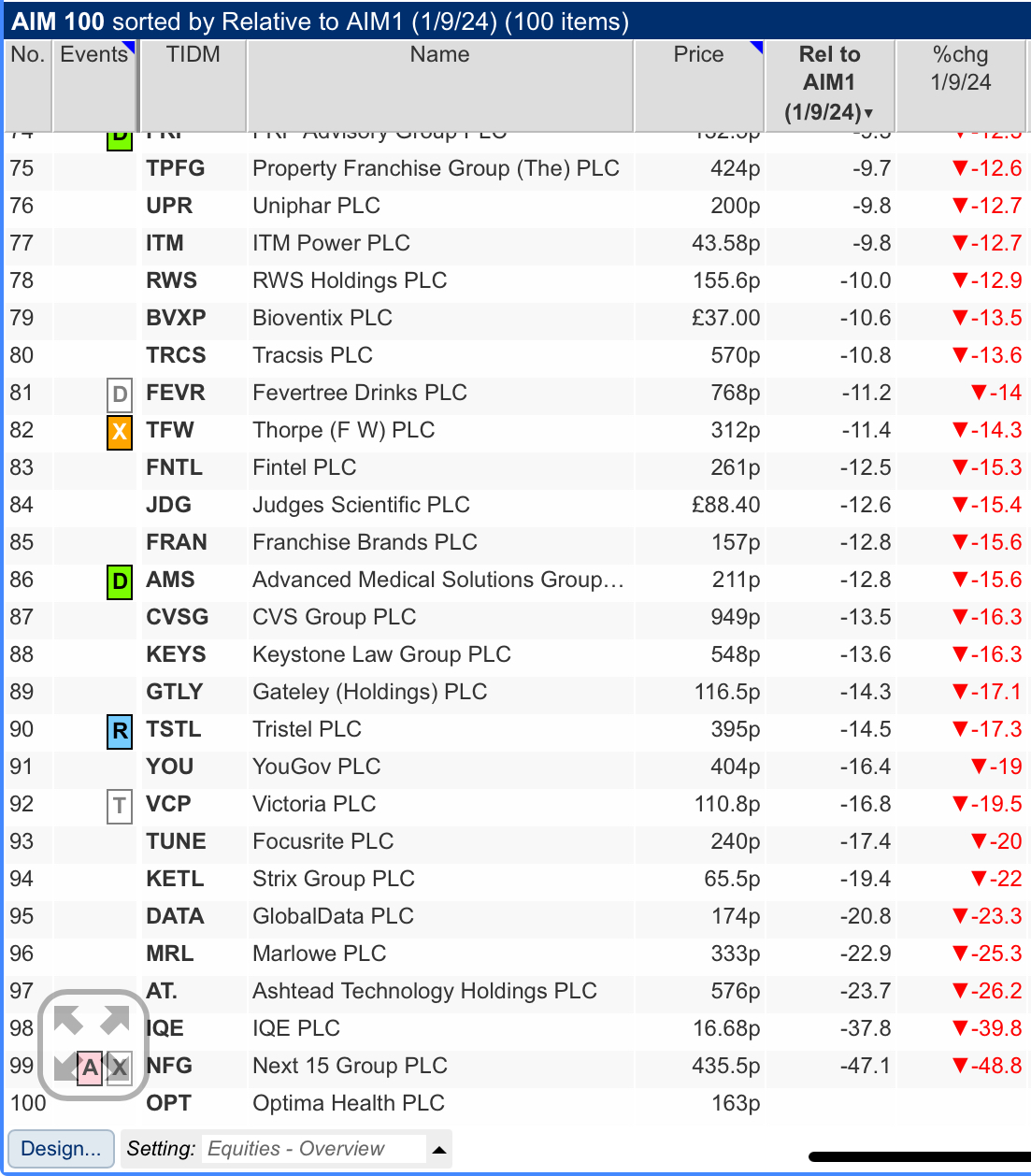There is no doubt that AIM Stocks have suffered recently. In early summer, the expectation was that inflation had been tamed and the interest rate cycle had turned. This led to some optimism returning to the market, which had been beaten down for so long. Here is what the AIM100 index looks like over three years:

However, that optimism has proven short-lived. The surprise election in July led to an increased focus on what an incoming government would look like and what impact this would have on investors:

The effect on the smallest UK stocks from this uncertainty has been two-pronged. Firstly, it appears to have caused a dip in consumer sentiment. The GfK Consumer Confidence index dropped to -20 in September from -13 the previous month. Expectations for personal finances over the next 12 months, the 12-month outlook for the economy and the major purchase index all fell significantly. The blame has been put on worries about what will be in the Autumn Budget that will be announced on 30th October. The message from the new government has been that public finances are in dire straits. The view is that the lack of investment in recent years needs to be corrected, and this needs to be funded by tax rises rather than borrowing.
We've seen the impact of this reduced consumer confidence already, with many smaller UK companies warning of challenging market conditions and a number of profit warnings recently. Even companies that haven't warned are saying they expect to be very H2-weighted. In many cases, the market is calling this hope misplaced and marking the shares down anyway.
The second impact is that investors have been getting ahead of what they see as the most likely tax changes. The two that seem to be the most talked about are changes to capital gains tax or the removal of inheritance tax relief on AIM shares. In addition, there may be changes to ISA or SIPP rules and how Oil & Gas profits are taxed.
Capital Gains Tax
The principle of Capital Gains Tax is that any gains made in a tax year above a threshold and outside of tax shelters such as a SIPP or ISA are subject to a tax rate, but investors can offset any losses (outside…








